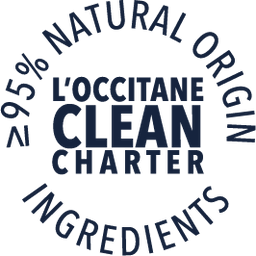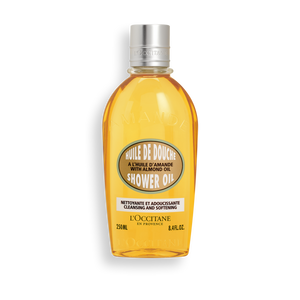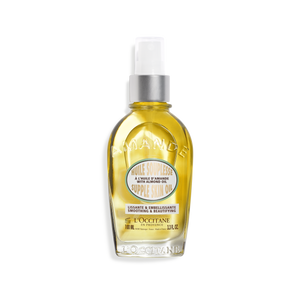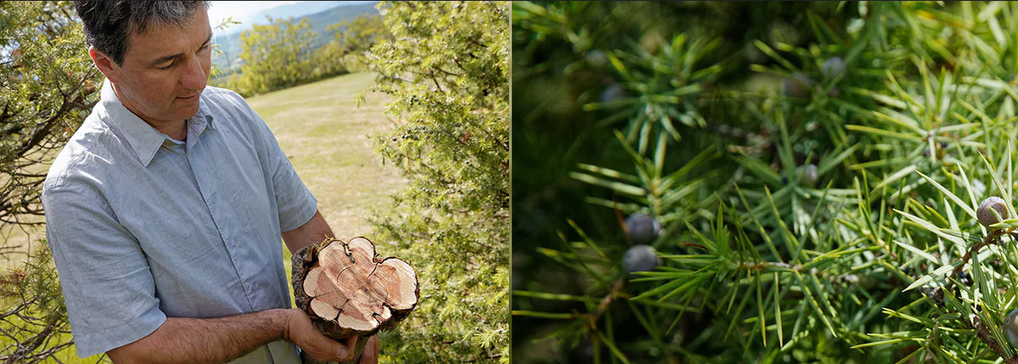
CADE
For hundreds of years, the oil of the cade – or otherwise known as Juniper – tree has been highly prized for its natural antimicrobial and moisturising properties and known as the Healing Oils of Haute-Provence. In the past, the cade tree’s precious oil was used as an antimicrobial, helping the Shepherds of Haute Provence protect their hands and faces against the elements as they worked in the highlands of Haute-Provence.
Tough, hardy prickly Cade – grows in the rocky sun-baked soils of the Mediterranean. Its strong, rot-proof wood was used by generations of Provençal shepherds to build pens, while its antiseptic essential oil helped to heal their animals' wounds. Impossible to cultivate, cade has to be harvested in the wild. Cade is still grown in Haute-Provence today, our collection uses the finest oils. At L'Occitane we work with local foresters who cut Cade during normal bush clearing activity – which keeps paths clear for hikers and reduces the risk of fires. By distilling its essential oil we're valorising a product that would otherwise go to waste.
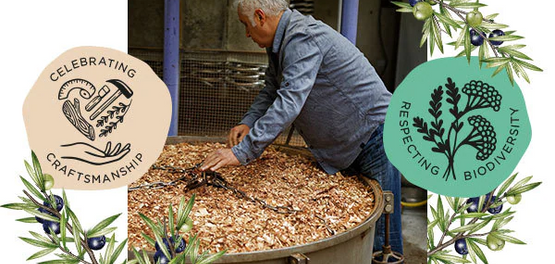
An inspirational producer of Juniper
L'Occitane heard about the unique benefits of Cade through the passion of our picker, Michaël Comte. Growing up in the rich forested landscape of the South Ardèche, he had been picking cade since his childhood.
As an adult, his brush-clearing work with the Forestry Commission brought him back into contact with the wood. Hating to see it go to waste and remembering the properties of its oil – he brought it to our distiller Philippe Soguel, who introduced us. From there, a partnership was born; along with our patented blend of cade and rosemary essential oils in our men's skincare products.
"As a child, I used to help my father cut Cade to make vine stakes. My grandfather had also used Cade to make pens for his ewes. We used to walk through the forest collecting it."
"When I started helping the local Forestry Commission maintain their tracks, I came to cut cade wood. My cousin, who knew the world of cosmetics, reminded me of the antiseptic and soothing properties of cade essential oil and gave me the idea: maybe I could distil it. At the time, there wasn't a market for this essential oil, but I wanted to promote the wood so typical of my region."
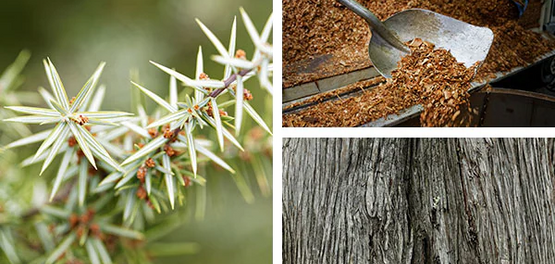
Benefits of Cade Oil
It is said that Cade has one thousand and one virtues. Its essential oil is a true all-rounder. Once used by Provençal farmers to treat skin conditions, it's antiseptic properties are well-known in Mediterranean France. As well as being anti-septic, it also works as an exfoliator and can help to reduce dandruff by sloughing away flakes. Its cleansing nature leaves hair and skin squeaky-clean limiting excess sebum. Another benefit of cade is its own distinct, masculine aroma – earthy, woody and warm.
Too waxy to burn for firewood and no longer used for fence-building, the Cade that is cleared from the forests of the Ardèche each year is rescued by L'Occitane. The essential oil from this wood is truly precious. It is an oil that we have to work for, not only does Cade take a long time to grow, but it's wood needs to be dried for two years before it can be ground down and distilled.
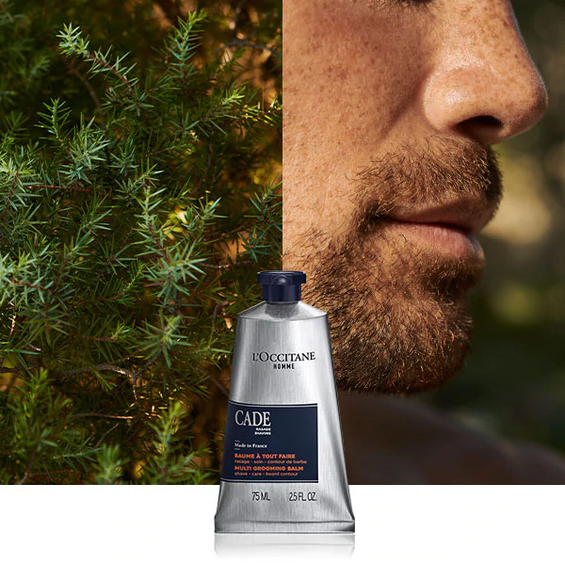
Did you know?
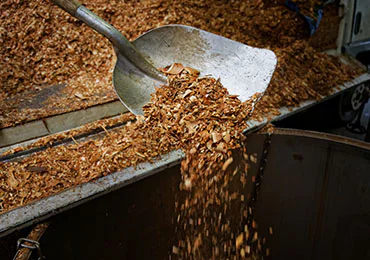
Traceability
Our Cade wood is traditionally harvested in the wild, in a 50-hectare area south of the Ardèche – which is certified 100% organic.
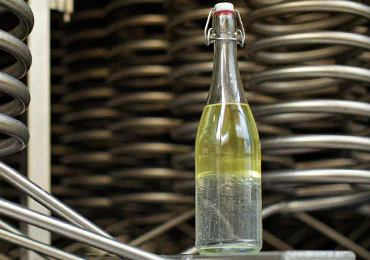
A Patented Formula
Our patented blend of Cade and rosemary essential oil is magic. Anti-oxidant, anti-microbial and anti-inflammatory, it helps to soothe skin.
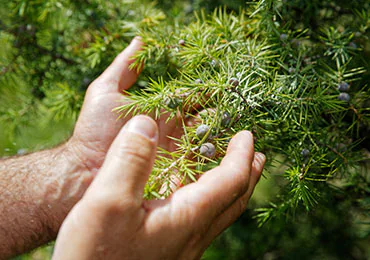
Biodiversity
Cade is harvested as part of the bush clearing efforts in the forests of Provence, and our harvester Michaël Comte has committed to our Sustainable Picking Charter.
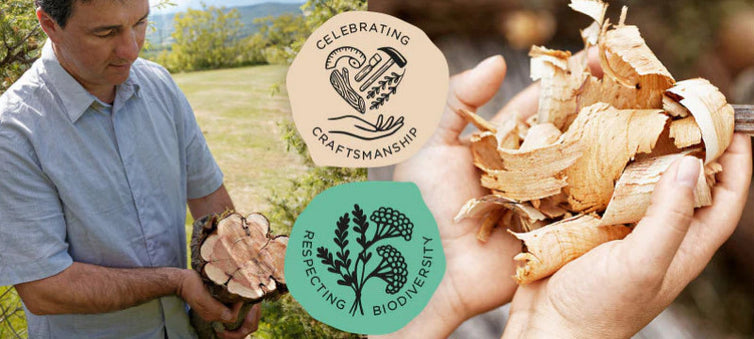
OUR COMMITMENT
Naturally, L'OCCITANE cares for nature and it's sustainability. We use traceable and sustainably sourced ingredients in our products, making sure to protect the environment and biodiversity. As well as this, we are passionate about showcasing stories of talent; we champion the expertise and craftsmanship of our producers.
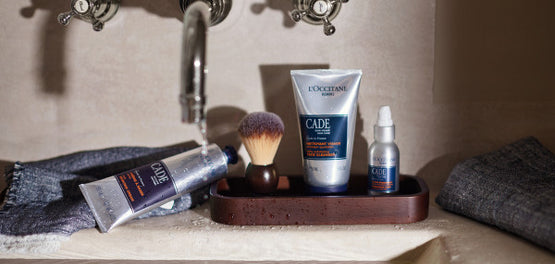
CADE COLLECTION
L’OCCITANE’s Cade Collection protects men’s skin from daily aggressions and modern day challenges like shaving, sun and pollution.

